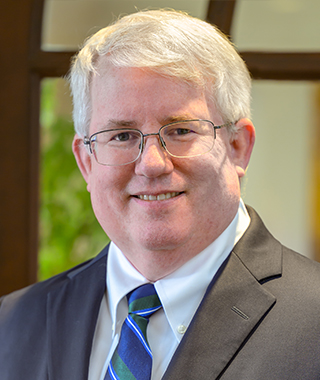Our Professionals

Craig R. Springfield
Partner

BSBA, magna cum laude, University of Central Florida, 1985
MS, Accounting, University of Central Florida, 1987
JD, with honors, University of Florida, 1990
LLM, Taxation, New York University, 1991
Craig Springfield has been a partner with Davis & Harman LLP since 1998. His federal tax advisory practice focuses on the taxation of life insurance, annuities, long-term care insurance, accelerated death benefits, health insurance and other insurance products. Craig frequently represents insurance companies to obtain private letter rulings and other forms of guidance from the Internal Revenue Service and the Department of the Treasury. He also has extensive experience working with clients to obtain closing agreements that address various compliance issues, including under sections 7702 and 7702A of the Code and for failures to satisfy withholding and reporting obligations. Craig has worked on various legislative matters, e.g., the tax treatment of long-term care insurance combination products and the Medicaid rules governing qualified state long-term care insurance partnerships.
Craig frequently writes on insurance tax topics. He is coauthor of Life Insurance & Modified Endowments (2d ed., Society of Actuaries 2015) and Tax Management Portfolio No. 528, U.S. Income Tax Definition of Life Insurance and Annuity Contracts (Bloomberg 2018). Craig also coauthored the chapter on “Tax Reporting and Withholding Requirements for Annuities” in the Annuities Answer Book (5th ed. Wolters Kluwer 2017). Some of the articles Craig has authored or coauthored include: The Life Insurance Product Tax Provisions of H.R. 1, Taxing Times (June 2018); Product Tax Implications of the Adoption of the 2017 CSO Tables, Taxing Times (October 2016); They Go Bump in the Night: Life Insurance Policies and the Law of Material Change, Taxing Times Supplement (May, 2012); A Mystery Partially Unveiled: The IRS Rules on Section 7702A’s Necessary Premium Test, Taxing Times (Feb., 2012); The CLASS Act: What Does it Mean for Private Long-Term Care Insurance, Journal of Financial Service Professionals (Sept. 2010); New Closing Agreement Procedure for Failed Life Insurance Contracts – Rev. Proc. 2008-40, Taxing Times (Feb. 2009); Rev. Proc. 2008-39 – Correction of Inadvertent MECs: Is the Third Time the Charm? Taxing Times (Feb. 2009); New Rules and Opportunities for Long-Term Care Insurance Combination Products, Taxing Times (May 2007); Determining Guideline Premiums for Fixed-Premium Universal Life Insurance Contracts, Taxing Times (Dec. 2005); Stop Q-LTC Premium Distinctions, National Underwriter (May 10, 1999); and The New Tax Rules Governing Long-Term Care Insurance, Journal of the American Society of CLU and ChFC (Sept. 1997, Nov. 1997 and Jan. 1998).
“Insurance companies and their products have evolved over time to meet the changing needs of society, and the tax law, to be sure, has evolved as well. From very early in my years of practice, it has been rewarding, and always very interesting, to work with insurers and others at the crossroads of these changes.”
Craig also often speaks on insurance tax topics, including at programs of the Insurance Tax Conference, Society of Actuaries, Federal Bar Association, American Bar Association, ALI-ABA, Intercompany Long-Term Care Insurance Conference and the Association of Fraternal Benefit Counsel.
A native of Florida, Craig received his B.S.B.A., magna cum laude, and M.S. in Accounting from the University of Central Florida. In 1990, he earned his J.D., with honors, from the University of Florida, and in 1991 he received an LL.M. in Taxation from New York University. Craig is a member of the District of Columbia Bar and the American Bar Association Section of Taxation, where he previously served as chair of its Committee on Insurance Companies.
Professional Memberships
- Former Chair, ABA Section of Taxation, Insurance Companies Committee
Bar and Court Admissions
- District of Columbia
Explore the wide range of legal services tailored to meet the unique needs of our clients.
